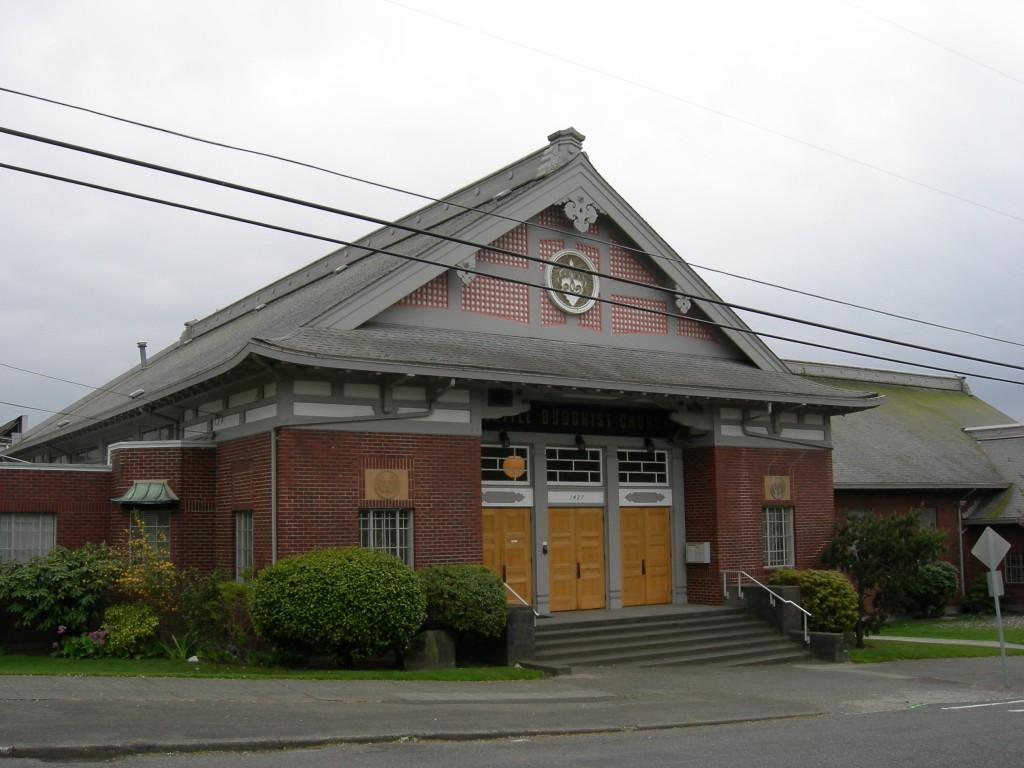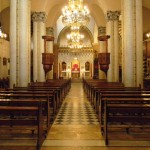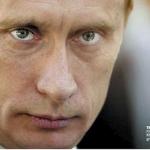
And Driscoll apologized. The protest was defused.
I tell this story now because eight years later, after a series of allegations and a protest that was not defused, the church planting network that Driscoll helped to found, the Acts 29 Network, has now removed him and his congregation, Mars Hill Church, from the network. A letter circulated by Patheos blogger Warren Throckmorton details Acts 29’s rationale:
Over the past three years, our board and network have been the recipients of countless shots and dozens of fires directly linked to you and what we consider ungodly and disqualifying behavior. We have both publicly and internally tried to support and give you the benefit of the doubt, even when multiple pastors in our network confirmed this behavior.
On the public statement, Acts 29 also encourages Mars Hill Church to follow suit: ‘In taking this action, our prayer is that it will encourage the leadership of Mars Hill to respond in a distinctive and godly manner so that the name of Christ will not continue to be dishonored.’ This is spoken in a tone of charitable sorrow: ‘Based on the totality of the circumstances, we are now asking you to please step down from ministry for an extended time and seek help.’
The question for those who have followed Driscoll for some time is: but where will he seek help? Because Driscoll has long controlled the discourse about secularity in Seattle from The Radical Reformission to A Call for Resurgence, it might seem that with Driscoll’s fall, the last hope for Christianity has been snuffed out. Get help? some evangelical readers might say. In godless Seattle?
As Seattle University religious studies chair Sharon Suh is wont to say, this ‘none zone’ discourse that frames Seattle is racializing. Among other things, it erases the vibrancy of Asian American religions from the landscape — which is precisely why Suh’s work with Seattle’s Wing Luke Museum of the Asian American Experience is so important, as it recovers the artifacts of Asian American religious practice, Christianity especially. Seattle has never been ‘godless,’ not least for Asian Americans.
But to add even more grains of salt to Driscoll’s problematic argument, the vibrancy of Christianity in Seattle as I have worked at the University of Washington has been stunning. In fact, the fact that the 2006 protest was led by ‘local church leaders’ means that Driscoll has never been the only game in town. Here are some of my observations:
- The Dominican Order has been doing a tremendous work in Seattle’s U-District as part of the Catholic Archdiocese of Seattle. Based at both Blessed Sacrament Parish and the Catholic Newman Center, the Order of Preachers runs young adult groups, including a series of small groups based around reading Catholic literature and drinking beer, that rivals any small group system that a megachurch can have. Also, there is a fairly strong Communion and Liberation network, an international network based off the teachings of Fr. Luigi Giussani that boasts alumni like Sean Cardinal O’Malley and Pope Francis. The Catholic Church has also had its share of controversy: recently, a vice principal from Seattle suburb Saamamish was controversially fired for marrying his same-sex partner.
- There is a vibrant ecumenical arts scene, especially because the premier ecumenical literary and arts journal, Image Journal, is based at Seattle Pacific University. This comes complete with commentators like Artur Rosman on Cosmos the in Lost and Patheos Catholic’s Mark Shea and Pia de Solenni. Also, it has had quite an impact on the Episcopal Church, boasting, say, the new bishop of Vancouver’s Diocese of New Westminster, the Rt. Rev. Melissa Skelton, who long argued that Anglicanism attracts evangelicals because of its aesthetic emphases; some of Image Journal’s events are also held at St. Mark’s Cathedral, a large liberal Protestant church whose Compline services are so famous, they get podcasted on iTunes.
- Seattle Pacific University’s theology department is itself becoming something of a hub for theologies of race. Populated by figures like Brian Bantum, Billy Vo, Bo Lim, and Dave Leong, there is a new effort to understand the complicity of modern Christian theology in colonizing processes in order to rediscover new modes of postcolonial orthodoxy. This is no mere academic effort: much of this gets funneled through Quest Church, an Evangelical Covenant Church pastored by the likes of Eugene Cho and Gail Song Bantum that takes racial justice seriously. These people also do social justice work for new immigrants; Leong, for example, has written a whole book about his experience working in Seattle’s Rainier Valley.
- If Mark Driscoll imagines that he’s the only Calvinist preacher in town worth hearing, then he has effectively silenced University Presbyterian Church, a huge Presbyterian Church (U.S.A.) in the U-District that also has ties with the more conservative Fellowship of Presbyterians. Its former pastor was the Rev. Earl Palmer; the current pastor is the Rev. George Hinman. Both teach preaching. Both are worth hearing. Oh, and UPC has women on its pastoral staff. (I should also mention that Professor Sam Tsang, New Testament scholar extraordinaire, also lives in a Seattle suburb. He is also Reformed and affirming of women in pastoral ministry.)
And that is just a start. If you’re thinking, ‘This only scratches the surface,’ you have only reinforced my point.
I should mention also that for what it’s worth, the University of Washington’s Comparative Religion Unit began because fundamentalist pastors in Bellevue sued the university for teaching liberal theology; that there were fundamentalists to file a lawsuit suggests that something is amiss with the whole ‘none zone’ thing. Moreover, the fact that the former chair of the unit, Eugene Webb, continues to write books on the Trinity and the current chair, my supervisor Jim Wellman, is an ordained PCUSA pastor, gives even more pause for thought. In fact, you should read some Wellman’s recent meditations on loss and grief — it’s powerful stuff.
Seattle is far from the none zone that Mark Driscoll has depicted it to be. Because of this, the help that Acts 29 calls him to receive is abundantly available — from Asian American Christians, Roman Catholics, ecumenical artists, theologians of race, evangelicals who ordain women, and liberal Protestants who think that same-sex marriage is uncontroversial. Driscoll should not be afraid of these people. After all, they seem to be the only people who have been discussing his recent news with me lately. As Gene Webb — the founder of my current home department — says, ‘The world is a vast experiment in incarnation.’
May it truly be so.
#TPCIU
















